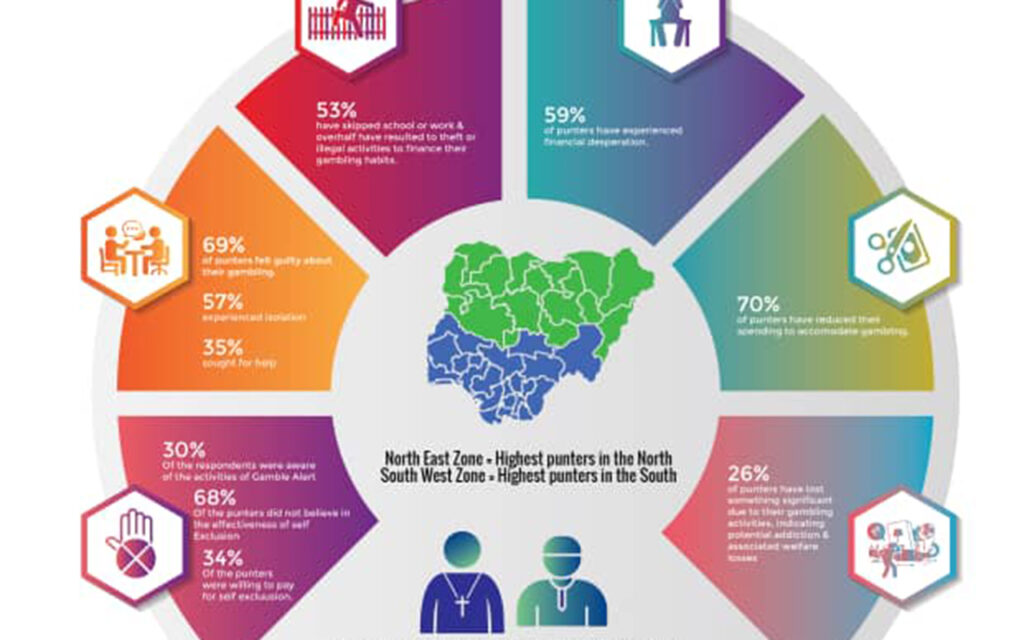 Members of Gamble Alert in partnership with Gamban (UK) have stressed the need for the government and other key stakeholders in the gaming industry, to form alliance and curb menace associated with gambling.
Members of Gamble Alert in partnership with Gamban (UK) have stressed the need for the government and other key stakeholders in the gaming industry, to form alliance and curb menace associated with gambling.
The development followed a research by Gamble Alert and Gamban UK on the prevalence of gambling in the country and the availability of treatment services to address the problem.
Gambling’s surge among Nigerian youth, driven by technological advancements and new gaming products, has led to worrisome concerns regarding heightened exposure to violence and abuse among individuals grappling with gambling problems.
Valued at over $2 billion in 2020, the Nigerian betting industry has attracted both domestic and international investors, offering diverse gaming options, including sports betting, lotto games, and even predictions for national elections.
Despite contributing to job creation and government revenue, the industry poses substantial risks of addiction, financial strain, and adverse social consequences.
The main goal of the research was to thoroughly investigate how common gambling is, and the gambling related harms in Nigeria.
The study draws its primary data from individuals aged 18 and above in 34 states across Nigeria’s six geopolitical zones, focusing on variables such as socio-economic characteristics, betting activities, gambling harm, and awareness of treatment services. The data revealed that a notable concentration of gambling among respondents are aged 26-35, closely followed by the 18-25 age group.
The research highlights regional disparities, with the North East zone having the highest concentration of punters in the North, and the South West zone leading in the South.
In the high-stakes world of gambling, where chance meets choice, external factors often wield a powerful influence. The data analysis showcased a higher prevalence of gambling among Christians compared to Muslims, potentially influenced by varying religious beliefs.
Also, a significant number of punters were introduced to gambling by close associates, indicating the role of peer influence in fostering gambling behavior. The survey pointed out the adverse effects of gambling, as more than one-quarter of respondents admit to frequently lying due to gambling, 53 per cent have skipped school or work, and over half have resorted to theft or illegal activities to finance their gambling habits.
Furthermore, the research highlighted concerning aspects of gambling behavior, with 59 per cent of punters experiencing financial desperation and 70 per cent reducing their spending to accommodate gambling.
In addition, 26 per cent has lost something significant due to their gambling activities, indicating potential addiction and associated welfare losses. The analysis also shed light on the psychological toll, revealing that 69 per cent of punters felt guilty about their gambling, 57 per cent experienced isolation, and only 35 per cent sought help. The study also showed that 30 per cent of the respondents were aware of the activities of Gamble Alert while 68 per cent of the punters did not believe that self-exclusion was effective.
Therefore, the reason only 34 per cent of the punters were willing to pay for self-exclusion is not far-fetched. This implies that more awareness needs to be created among the punters to ensure they adopt the self-exclusion tool for improved outcomes.
In conclusion with these results emphasize the immediate necessity to tackle the mental health repercussions linked to problem gambling and establish support systems for individuals struggling with addiction, in order to alleviate the negative outcomes associated with this behaviour.












